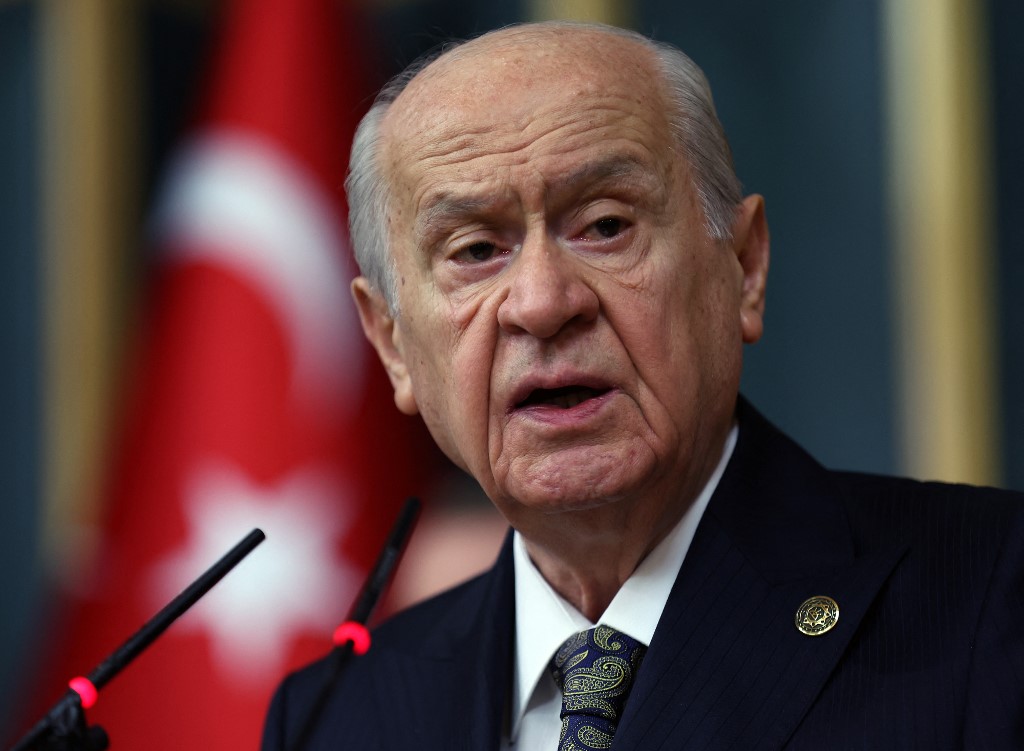The ruling Justice and Development Party (AKP) and its ally, the Nationalist Movement Party (MHP), have criticized a proposal for a constitutional amendment re-establishing the parliamentary system of governance in Turkey that was recently announced by a bloc of six opposition parties.
Through a referendum in April 2017, Turkey switched from a parliamentary system of governance to an executive presidential system that granted President Recep Tayyip Erdoğan and his ruling Justice and Development Party (AKP) sweeping powers and was criticized for removing constitutional checks and balances, thus leading to a further weakening of Turkish democracy. Critics call the system “one-man rule.”
The “Table of Six,” which refers to the leaders of the main opposition Republican People’s Party (CHP), the İYİ (Good) Party, the Felicity Party (SP), the Future Party (GP), the Democrat Party (DP) and the Democracy and Progress Party (DEVA), signed a declaration in February confirming their resolve to introduce a “strengthened parliamentary system” should they unseat President Erdoğan in the 2023 elections.
The bloc on Monday announced their proposal for the constitutional changes to revert to the parliamentary system with the slogan “Now is the time for democracy” during a meeting that saw the participation of all six party leaders.
Politicians from the ruling AKP and its ally the MHP have criticized the proposal, saying it promises nothing but taking the country back to the times of the parliamentary system, which they argue had paved the way for coalition governments, instability in politics and even coups.
AKP spokesperson Ömer Çelik on Tuesday said in a speech in Ankara that the proposal was based on the opposition bloc’s policy to go against Erdoğan at all costs and that it would “resurrect the dark days of the [military] tutelage of the past.”
Speaking at his party’s group meeting on Tuesday, MHP leader Devlet Bahçeli said the opposition’s proposal would “rewind history, dynamite the state’s foundations and denigrate the nation’s discretion” since it was the Turkish electorate who chose to switch to an executive presidential system in the 2017 referendum.
“Democracy is the will of the people. To call a system approved by our nation ‘monstrous’ is an insult to the nation. The only thing promised by the parties in the Table of Six … is a return to the past,” the AKP’s Bartın deputy said in a tweet on Monday.
Demokrasi,millet iradesidir.
Aziz milletimiz, 2017 halkoylamasıyla Cumhurbaşkanlığı Hükümet Sistemi'ne “evet” demiştir.
Milletimizin onay verdiği bir sisteme "ucube" demek millete hakarettir.
6’lı masa Partilerinin “Anayasa önerisi” ile vaadettiği tek şey eskiye dönüştür.
— Yılmaz TUNÇ (@yilmaztunc) November 28, 2022
“A big step for the Table of Six, a small step for Turkey!” Bülent Turan, the ruling AKP’s group deputy chairman tweeted on Monday, adding that they had witnessed no excitement and nothing but a revisitation of some old and widely known discussions during the opposition bloc’s meeting to announce their proposal.
Altılı Masa'nın bugünkü toplantısında hiçbir heyecanın olmadıığını, yapısal bir öneri sunulmadığını, sadece bilinen bazı eski tartışmaların güncellendiğini gördük.
6’lı Masa için büyük, Türkiye için küçük bir adım!
— Bülent TURAN (@turanbulent) November 28, 2022
Kamil Tekin Sürek, a columnist for the Evrensel daily, said in an article published on Tuesday that although the constitutional amendment proposal had minor positive aspects and aimed to go back and find solutions to some of the problems in the old system, it couldn’t be considered “a democratic step forward.”
Journalists Özlem Gürses, Fatih Portakal and Gökçer Tahincioğlu, who attended the meeting of the Table of Six on Monday, answered journalist Duygu Demirdağ’s questions regarding the event and commented on the proposal.
While Gürses said the proposal was “very exciting” since she knew nothing more exciting than democracy, equality of opportunity, justice and freedom, Portakal said it was “promising” but that people also expect to see a roadmap for how the opposition bloc would lower the cost of living and ensure transparency, accountability and merit-based appointments by the government if they succeed in unseating Erdoğan.
The proposal, which consists of 84 articles, puts emphasis on the principle of the separation of powers and aims to give the constitution a more liberal understanding.
According to the proposal, the president will be elected for a period of seven years and his ties to his party will be terminated as soon as he is elected. “Human dignity” will be considered the foundation of the constitutional order, and “freedom to criticize” will be guaranteed in a way that prevents arbitrary restrictions.
The changes will also include constitutionally guaranteeing animal rights for the first time, making the closure of political parties and the lifting of parliamentary immunity more difficult, prohibiting those found guilty of violence against women from serving in parliament and making the decision to withdraw from international agreements subject to parliament’s approval.
It also aims to lift emergency decree-laws that are subject to neither judicial nor parliamentary scrutiny and through which the Turkish government summarily removed more than 130,000 public servants from their jobs under the pretext of an anti-coup fight in the aftermath of an abortive putsch on July 15, 2016.



